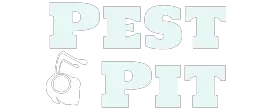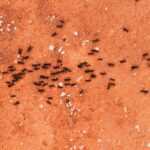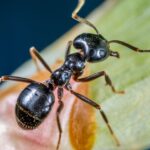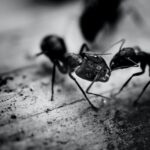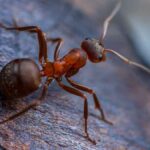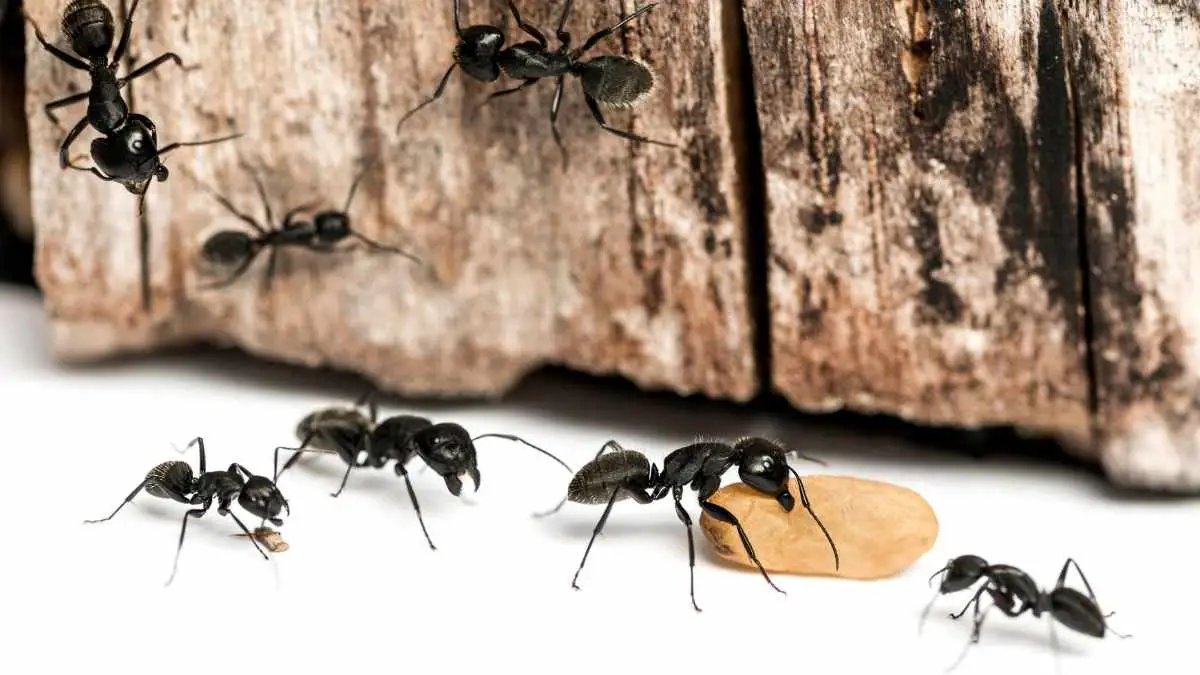Dealing with an ant infestation in your home or business can be more than just a nuisance. It can lead to food contamination and structural damage, overshadowing the marvel of their social structure and persistence. When you notice a few ants, it’s possible there are hundreds more hidden away. Recognizing the signs of a serious ant problem is crucial, as it can determine the right time to call in professional ant control services.
Professionals in ant control provide expertise and resources far beyond over-the-counter solutions. When ant pathways, nests, or consistent sightings become frequent and severe, it’s time to seek their help. Experts will not only address the current inhabitants but will also focus on preventing future infestations. This includes identifying points of entry, types of ants, and conditions that might be attracting them.
During a professional ant control visit, expect a thorough inspection of your property, followed by a strategic plan tailored to your specific ant problem. Treatment methods may vary, from baits and insecticides to more extensive measures. Professional exterminators are equipped with safe and effective tools to ensure that the ants are eliminated efficiently, while also safeguarding the health and safety of your household or patrons.
Recognizing Infestations
Properly identifying an ant infestation is crucial for effective control. Look for specific indicators of ant activity and assess the severity to determine if professional help is necessary.
Indicators of Ant Presence
- Visual Sightings: If you regularly see ants trailing, especially in the kitchen or bathroom, this is a clear sign of their presence.
- Ant Pathways: A line of ants, typically worker ants, which can lead you to their entry point or nest.
Assessing Infestation Severity
Size of Colony: Ant colonies can range from a few dozen to several thousand. If you frequently observe large numbers of ants, the colony may be substantial.
- Nest Location: Finding nests, characterized by small piles of soil or dirt, indicates a severe infestation.
- Extent of Damage: Note any structural damage or food contamination, as these can signify a larger problem.
Use these measures to determine the scope of the ant problem and whether professional intervention is warranted.
Benefits of Professional Ant Control

When you reach out to professional ant control services, you gain access to unparalleled expertise and a commitment to safety that ensures the well-being of your household.
Expertise and Effectiveness
Professionals in ant control bring advanced knowledge of ant behaviors and treatment methodologies that contribute to a high rate of success. They can identify the specific ant species infesting your property, which is crucial as different species require different treatment plans. You can expect:
- Identification of All Ant Species: Accurate diagnostics of ant types to tailor treatment methods effectively.
- Targeted Treatments: Advanced techniques specifically designed to address and eradicate your particular ant problem.
Safety and Health Concerns
The safety of your home environment is paramount; thus, professional ant control services use EPA-approved treatments that are safe for you and your pets. Their trained technicians handle chemicals with care, minimizing risk to your health. Key safety measures include:
- Use of Non-toxic Methods: Where possible, the use of treatments with a low risk of toxicity to humans and pets.
- Proper Chemical Handling: Expert handling of necessary chemicals to mitigate health risks.
Professionals not only work to solve your current ant infestation but also advise on practices to prevent future occurrences.
Selecting a Pest Control Service
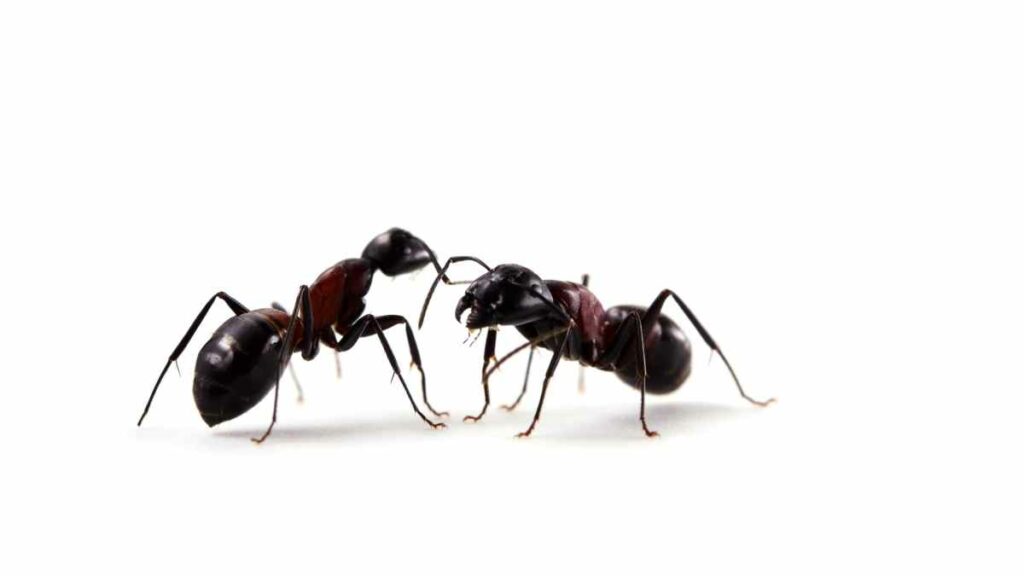
When choosing a professional ant control company, it’s crucial to assess their qualifications and to understand the services and guarantees they provide.
Qualifications and Credentials
Before hiring a pest control service, verify their credentials:
- License: Ensure they have a valid license to operate in your state. Check with your state’s regulatory agency.
- Experience: Look for companies with a proven track record of effectively dealing with ant infestations.
- Insurance: Confirm they carry liability insurance to protect your property in case of accidental damage.
Services and Guarantees
Examine what the pest control service offers:
- Inspection: A thorough inspection should be provided to identify the ant species and nest locations.
- Treatment Plan: The company should offer a clear, itemized plan of action, including follow-up visits.
- Guarantee: Check for a service guarantee, ensuring that if ants return within a given time frame, the company will provide additional services at no extra cost.
When selecting a service, consider these factors to make an informed decision and ensure effective ant control on your property.
Ant Control Treatment Process
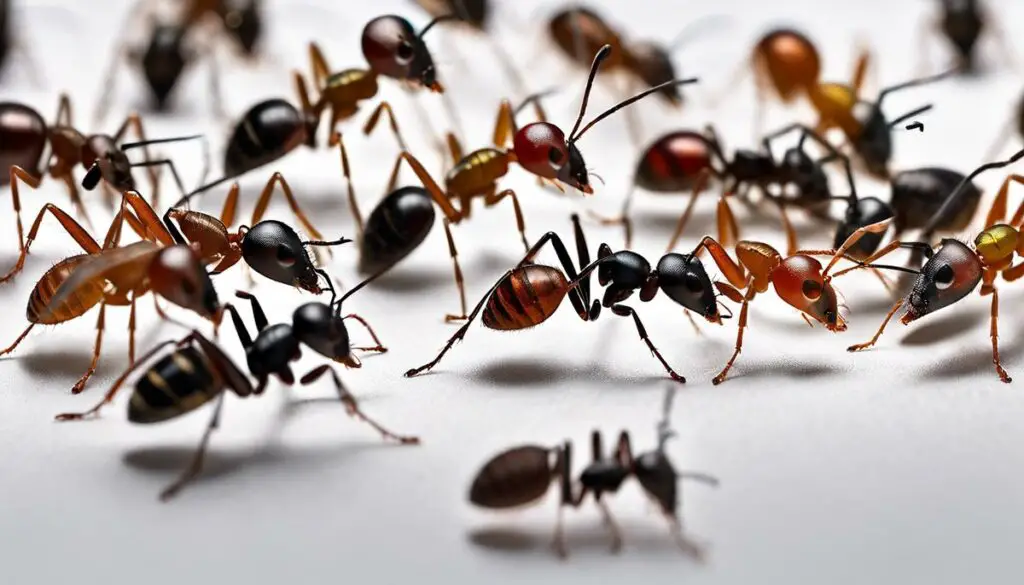
Effective ant control involves a comprehensive approach that includes thorough inspection, tailored treatment application, and diligent follow-up visits.
Inspection
Your ant control treatment process begins with a detailed inspection by the experts. They’ll assess your property to identify:
- Ant species: Different species require different treatments.
- Colony location: Professionals will pinpoint the nests.
- Entry points: Vital for preventing future infestations.
- Extent of the infestation: This dictates the scale of treatment needed.
Treatment Application
Once inspection details are gathered, the experts will apply treatments apt for your specific situation:
- Baits: These are strategically placed to be carried back to the colony.
- Sprays: Non-repellent insecticides are often used around entry points.
- Dusts: Insecticide dusts may be applied in wall voids or other ant pathways.
Follow-Up Visits
Ant control is not a one-time service. Follow-up visits are crucial to:
- Verify the effectiveness of the initial treatment.
- Address any remaining or new activity.
- Adjust treatment strategies as needed.
Follow-up visits typically occur 30 days post-treatment and then as required based on your unique situation.
Post-Treatment Considerations

Effective ant control goes beyond the initial treatment; it involves taking measures to prevent re-infestation and remain vigilant through regular monitoring and maintenance.
Preventive Measures
- Seal Entry Points: Inspect your home for small openings where ants can enter. Use silicone caulk to seal gaps around windows, doors, and utility lines.
- Eliminate Food Sources: Store food in sealed containers and keep your kitchen clean. Regularly dispose of garbage in sealed bags and containers.
- Reduce Moisture: Fix leaky pipes and faucets. Use a dehumidifier in damp areas of your home.
- Landscaping: Keep branches and shrubbery trimmed away from the house. Maintain a gap between mulch or soil and your home’s foundation.
Monitoring and Maintenance
- Regular Inspections: Schedule bi-annual inspections to check for signs of ant activity or new colonies.
- Bait Stations: Maintain ant bait stations around your property to monitor and control any potential resurgence of ants.
- Professional Services: If you observe increased ant activity, contact a professional pest control service promptly for further assessment and treatment if necessary.
